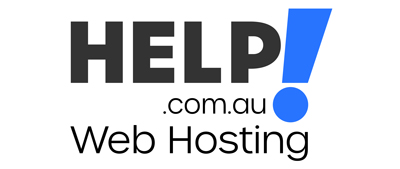But back on topic, the new GTLDs... I'm not sure how it will pan out, I'm really not. I still think ccTLDs (and .com for the US) will be unlikely to be dislodged as the default extension. If .asia, .me, .co etc can't do it when they have minimal competition, how can a new extension survive and prosper against 1700 competitors?
I think Frank is more on target than most people registering these gTLDs, ie the business model will only be viable if you get people keen to register domains off you, and he has bought a few who I can see legitimate end users from - .game, .hosting, .news, .pics, .realestate, .store etc
With an extensions like .blog or .news I can definitely "envision" a day where someone might part with real world money to register the domain australian.news, marketing.news, sports.news etc or chrisc.blog, marketing.blog, domain.blog, etc...
And with some of these extensions there is probably potential to get 200 interest buyers paying $1000+ for good domains straight away (ie I could see all the news companies being will to part with at least 4 figures for world.news on day one)... but at least 90% of these gtlds won't have ANY interested customers, many of them will only be able to be used for their own in house projects (in which case I see it as a waste of money).
If you look at just a random sample of 23 domains, you start going through the list and think "who would buy a domain with this extension":
AFRICAMAGIC - ??
AIGO - ??
AIRBUS - inhouse only - ie no value add
ALLSTATE - ??
ALSTOM - ??
APP - I think their could be potential here
ART - The obvious end user doesn't jump out at me but lots of people wanted this one
AUTO - The obvious end user doesn't jump out at me
BARCLAYS - inhouse only - ie no value add
BEAUTY - The obvious end user doesn't jump out at me
BLACKFRIDAY - ??
BNPPARIBAS - inhouse only - ie no value add
BRIDGESTONE - inhouse only - ie no value add
CALL - The obvious end user doesn't jump out at me
CAREMORE - ??
CATALONIA - ??
CHAT - Potential for chatroom owners?
CLICK - The obvious end user doesn't jump out at me
COMPANY - If .co didn't work why will this...
CORSICA -
CREDITCARD - The obvious end user doesn't jump out at me
DAY - The obvious end user doesn't jump out at me
DESI - ??
For me the only one from the random sample above that I can see an enduser going "hmm... I think the .GENERIC extension might be good, if not better extension for my site" would be .app ie I can see someone being willing to register fart.app rather than fartapp.com or if fartapp.com is already taken...
For all the others in those niches .com still makes more sense.
Then of course we aren't thinking about the elephant in the room... it's all for naught if Google don't see them as worthy of their index without penalty.
What is more interesting for me is that those that stand to gain the MOST in the short term from additional extensions given their current infrastructure and ability to sell are the current registrars - yet they haven't bought many themselves.
GoDaddy - .casa .home. godaddy
Namecheap - .online (I think this might be a decent one given loads of people want "online" in their domain)
So if the big boys don't see value they are either blind, or what is more likely, they don't see a short term ROI.
Personally I think Namecheap is on the money with the purchase of .online, and that might pay dividends ONE DAY, and the domain registrars might be prudent and spend a couple of million buying extensions of common site types like .blog, .news, .forum, .chatroom, .club, .shop etc... on the unlikely chance these do take off over time, in which case they will become a license to print money.
These have "potential" end users who could derive real value from the domain...
Outside of this I really just can't see many of them taking off in the next 2 - 5 years.
I'm not saying they won't, ONE DAY, be valuable - but I'm an "investor" which likes to buy assets with present day value, not a "speculator" which is someone who is projecting "unrealised future profits" so obviously I don't see value in buying at this stage, but a big part of that decision is that my capital base couldn't suffer the hit that Frank's could.

... potential DNTrade syndicate?








